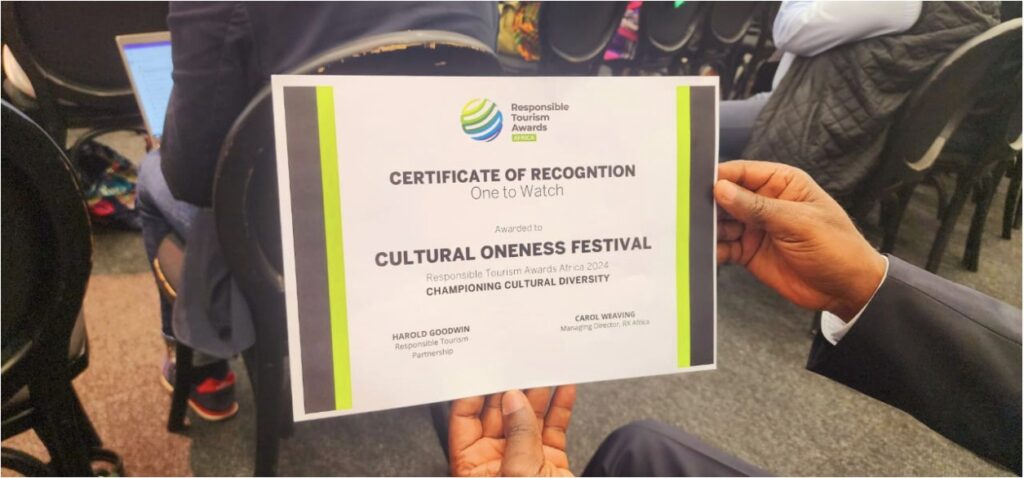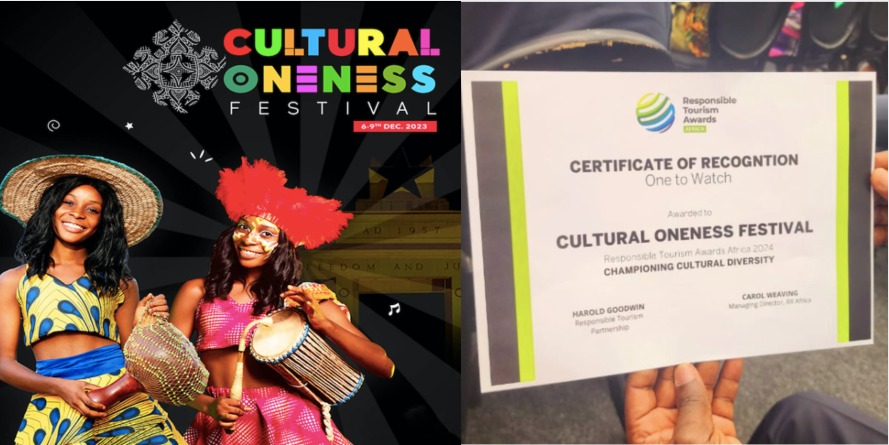On April 11, 2024, in Cape Town, South Africa, the World Trade Market (WTM) Africa’s Responsible Tourism Awards recognized trailblazers in the field for efforts that are really having a positive impact.
The Responsible Tourism Award presented by WTM Africa seeks to identify, reward, and encourage outstanding achievement in the field.
READ ALSO: The Taste Of Afrika Signs 5-year MoU With National Commission On Culture8
Due to these factors, the judges of the WTM Africa Responsible Tourism Awards decided to honour these companies and groups, including The Taste Of Afrika’s Cultural Oneness Festival.
Cultural Oneness Festival was named “One to Watch” by the Responsible Tourism jury at WTM Africa’s awards in South Africa.
What follows is an excerpt from the official website of the WTM Africa’s Responsible Tourism awards,
which describes Cultural Oneness Festival.
“The purpose of the Cultural Oneness Festival is to unite the continental Africans and diasporans as one people by celebrating Africa’s diverse heritage while emphasizing its shared cultural identity beyond linguistic and tribal differences, to foster unity and to celebrate the richness of the world’s most culturally diverse continent.

“The festival seeks to identify and promote investment opportunities for Diasporans to empower the communities of Northern Ghana and beyond economically. The judges were impressed by the idea and look forward to seeing it again with evidence of impact.
This year’s Cultural Oneness Festival is themed ‘Leveraging on our Strength for Shared Growth and Prosperity as One People’. It has been scheduled to take place at Tamale in the Northern Region from November 13 -16, 2024.
Cultural Oneness Festival is expected to contribute to fostering mutual understanding and
consolidating unity while developing and growing the tourism industry and attracting investment.
And for the first time, Cultural Oneness Festival intends to bridge the gap by connecting the Diasporans whenever they visit the various exit points in Cape Coast via Castles back to their roots in the Northern part of Ghana via the various slavery camps.


